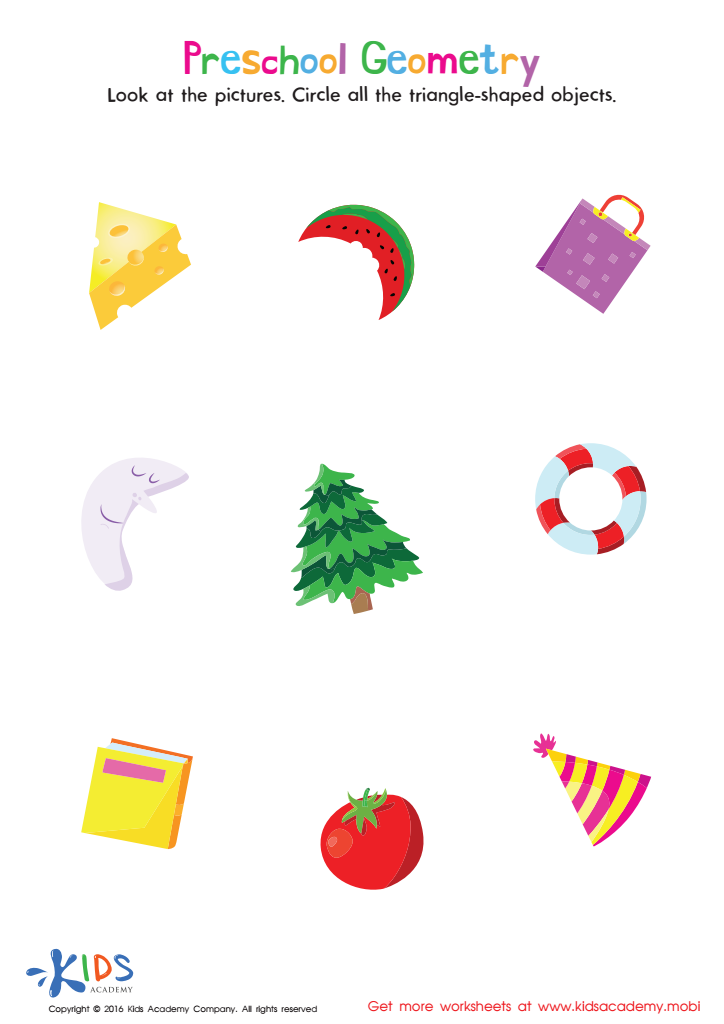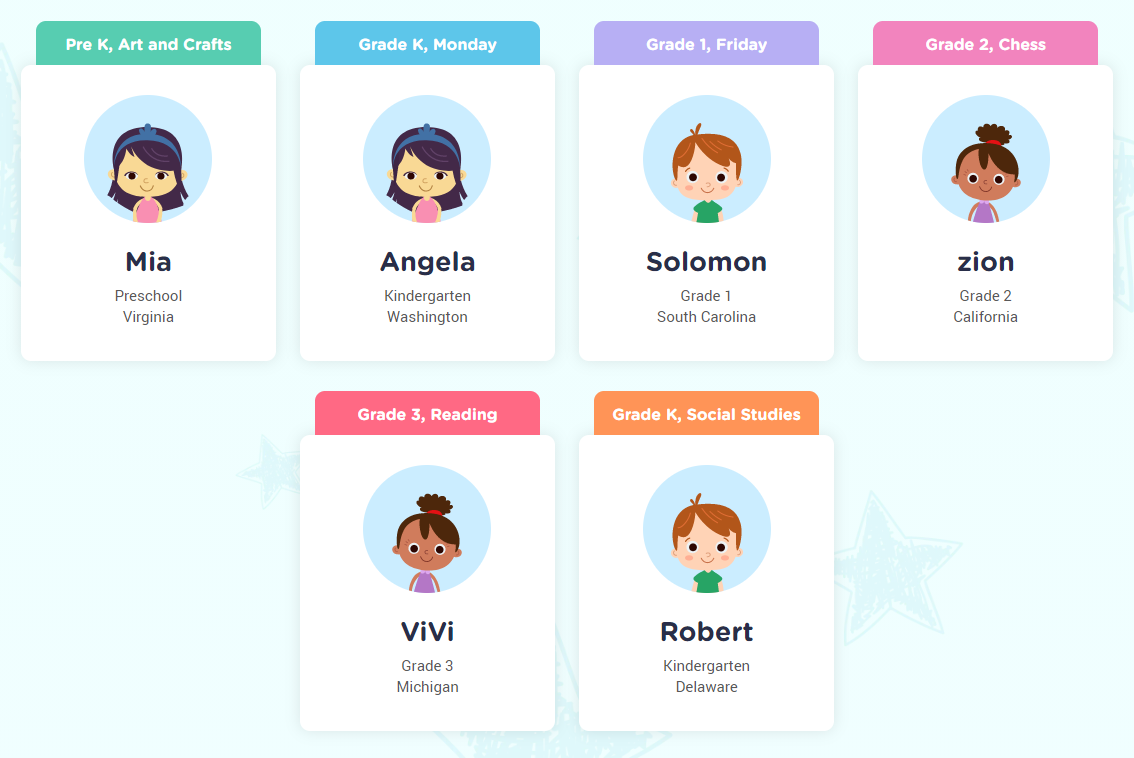Basic geometry understanding Math Worksheets for Ages 3-4
8 filtered results
-
From - To
Explore our engaging Basic Geometry Understanding Math Worksheets designed especially for children aged 3-4! These creative and colorful worksheets introduce young learners to foundational geometric concepts such as shapes, patterns, and spatial awareness. Through fun activities and interactive exercises, children will develop essential skills in identifying circles, squares, triangles, and more. Our materials promote critical thinking and problem-solving in a playful way, making learning enjoyable. Perfect for parents and educators, these worksheets are an excellent resource for enhancing your child’s early math skills and paving the way for future academic success. Download now and start exploring the world of geometry together!
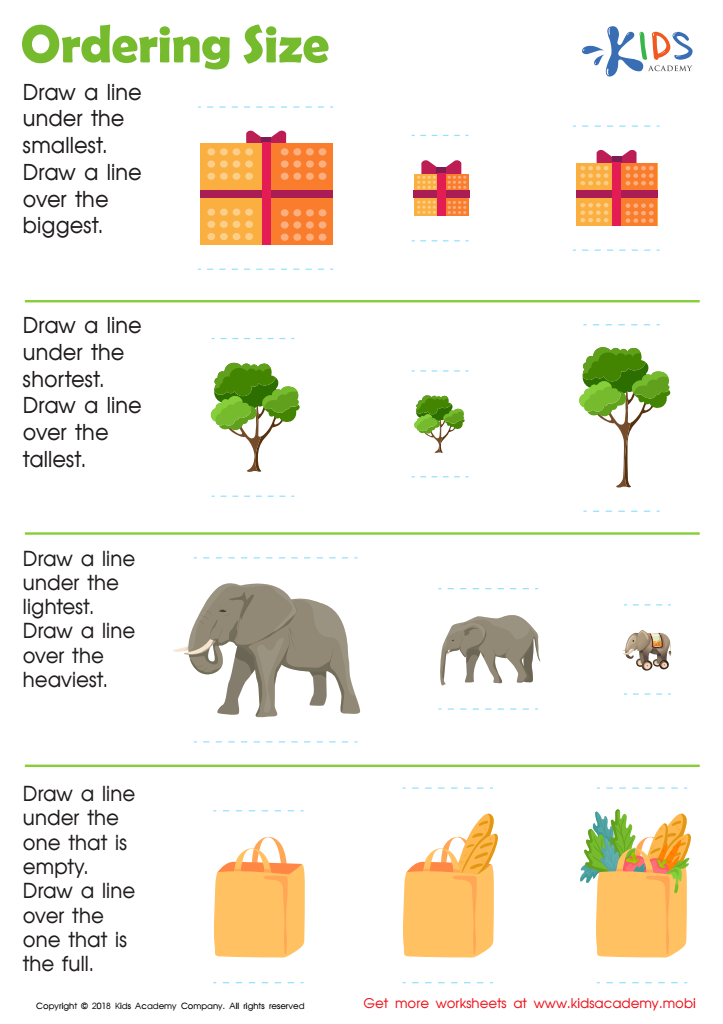

Ordering Size Worksheet
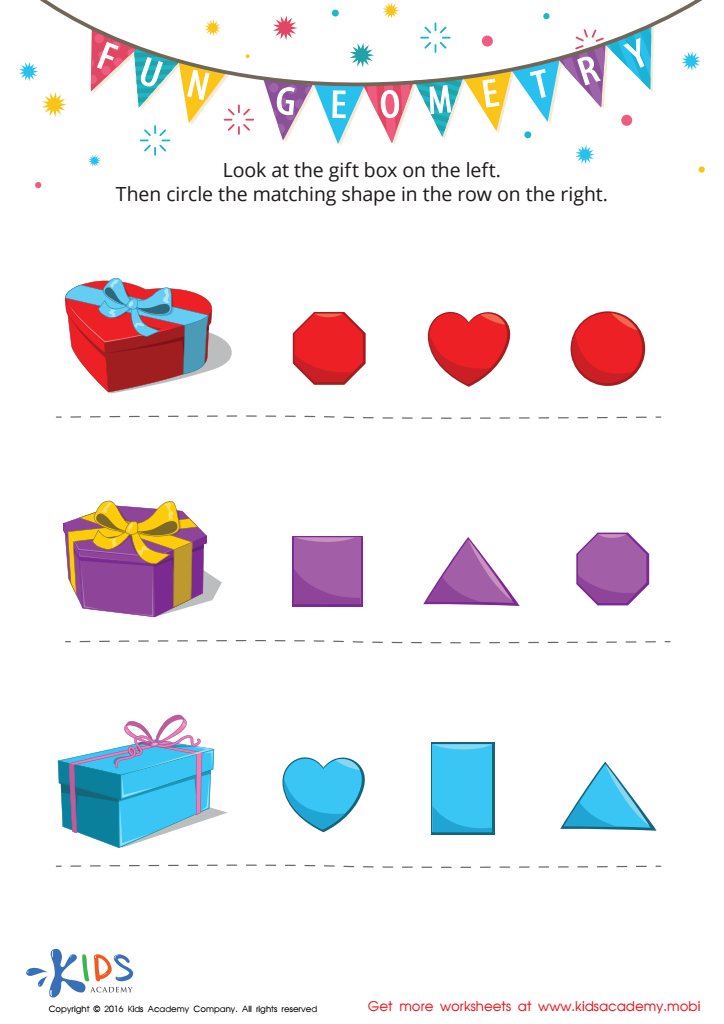

Fun Geometry Worksheet
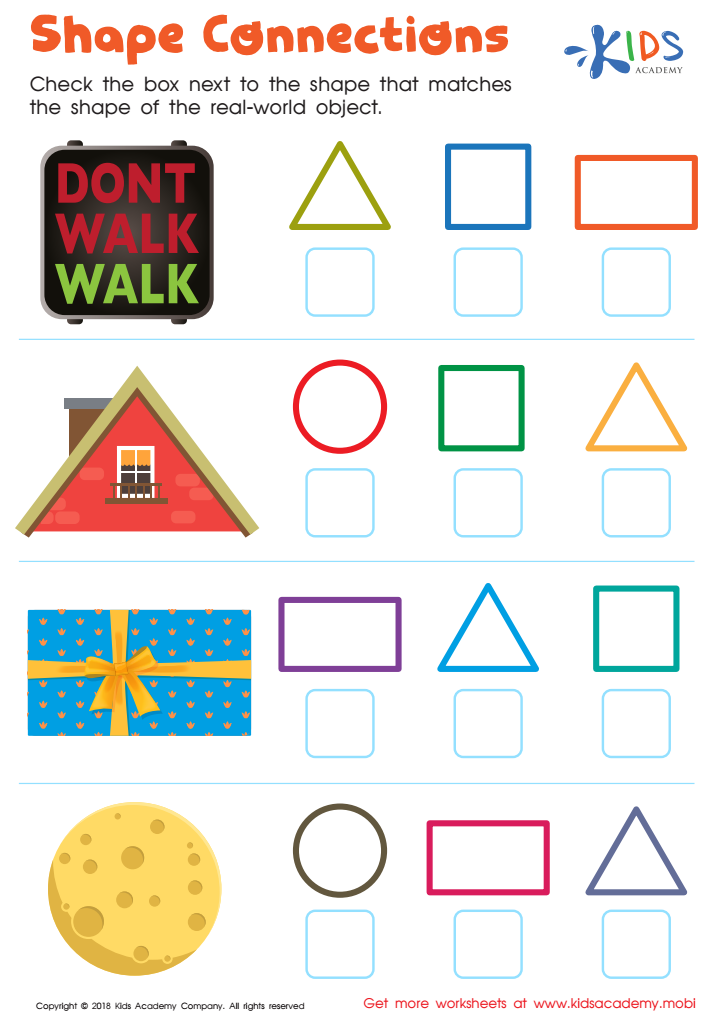

Shape Connections Worksheet
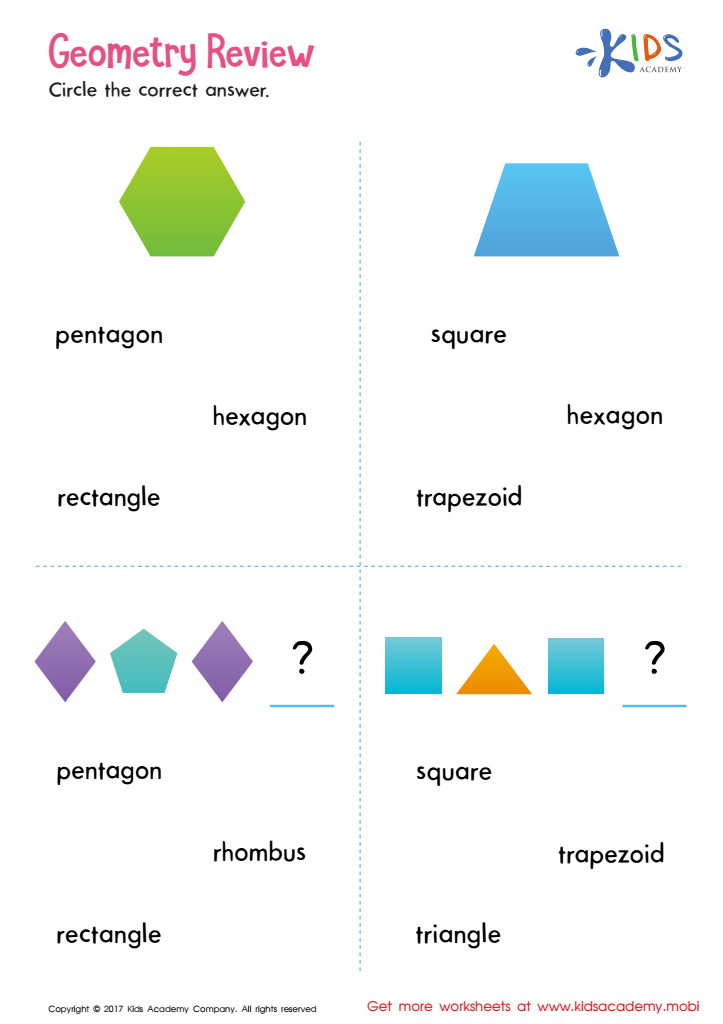

Geometry Review Printable
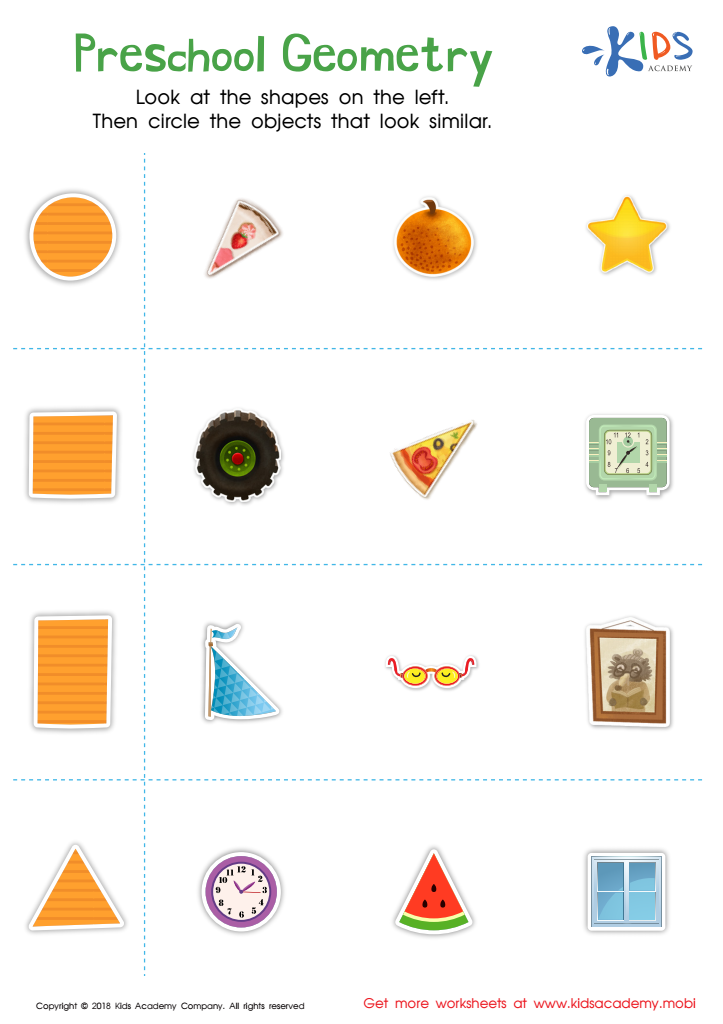

Preschool Geometry Worksheet
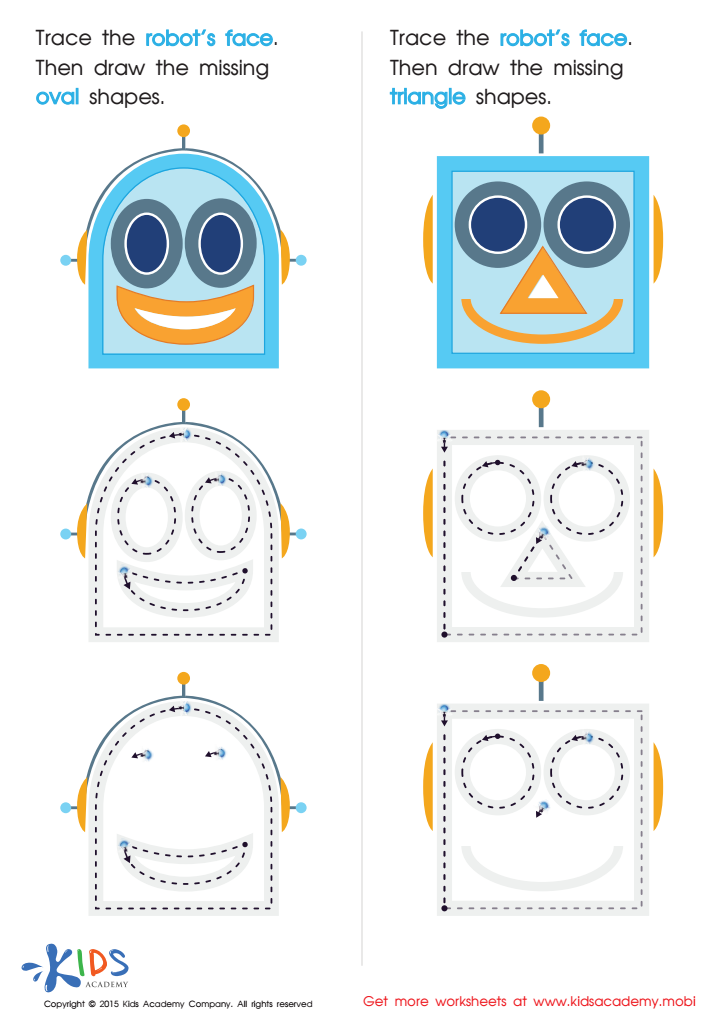

Drawing Ovals And Triangles with Fun Printable
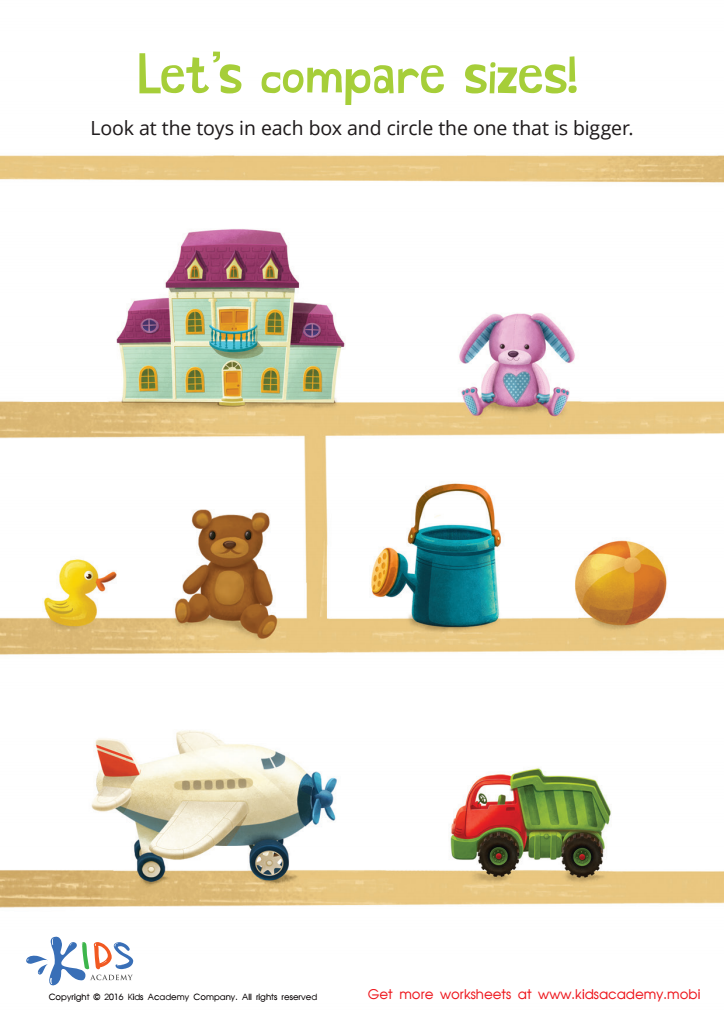

Classifying by Size Sorting Worksheet
Understanding basic geometry is crucial for children aged 3-4 as it lays a foundation for their future academic success in mathematics and other related fields. At this age, children are naturally curious, and exposing them to geometric concepts fosters their spatial awareness and cognitive development. Recognizing shapes like circles, squares, and triangles helps enhance their observational skills and ignites their imagination when engaged in creative play.
Geometry also intertwines with everyday experiences. When children identify shapes in their environment, they learn to categorize and make sense of the world around them, boosting their language skills as they describe objects. Additionally, engaging with geometric concepts supports early problem-solving skills, as children learn to analyze and compare shapes through play and exploration.
Moreover, fostering an understanding of basic geometry sets the stage for more advanced mathematical concepts in later years. Parents and teachers who prioritize geometry can encourage logical reasoning and critical thinking, essential skills not just in math, but in life overall. By integrating playful activities, such as shape sorting or building with blocks, caregivers can create a rich and supportive learning environment that emphasizes the significance of foundational mathematical understanding. Overall, investing time in geometry during these formative years can yield long-lasting educational benefits.
 Assign to My Students
Assign to My Students

